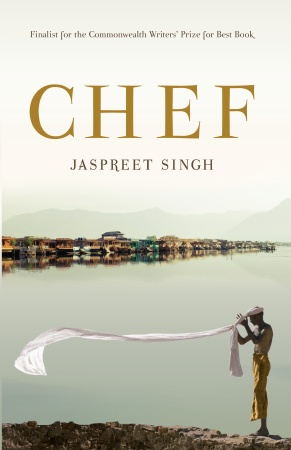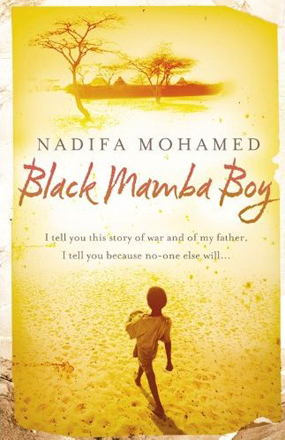
| current issue |
| archives |
| submissions |
| about us |
| contact us |
| short story competition |
sponsored by

From the Bedside Table: Exotic Voices Inga Simpson |
|||
|
One of the great delights of reading is to visit far away exotic places from the comfort of our own imaginations. The writers from this month’s bedside table were in Australia earlier this year for our festival circuit.
Set in remote and war-torn Kashmir, Chef tells the story of Indian Sikh, Kirpal (Kip), posted to General Kumar’s camp, in occupied territory beneath the Siachen Glacier. The glacier, one of the world’s largest, high in the Himalayas, is beautiful and terrible, overseeing a prolonged conflict between India and Pakistan. The glacier is also the site of Kip’s war-hero father’s death. As an officer’s son, Kip is assured officer status. His calling, however, turns out to be the kitchen. Under the supervision of colourful Chef Kishen (‘Fish, what would you like to become? Basil, where did you lose your heart?’), he comes of age as a chef and, eventually, a man. The novel opens 14 years later, with a cancer-ridden Kip taking the slow train back to Kashmir, to cook one last great meal - at the General’s daughter’s wedding. This framing provides a poignancy to Kip’s recollections, and emphasises the sensorial pleasures offered by food. Reputedly one of the most beautiful places in the world, Kashmir has also the site of 70,000 deaths since 1990 with another 10,000 Kasmiris ‘missing’ following arrest. Singh doesn’t glorify either extreme, focusing on the bleakness of the glacial landscape and the vibrancy of food. Indeed, Kip’s naivety keeps the reader at arm’s length from the realities of politics and history, which is frustrating at times. Nonetheless, Kip finds himself forced into the thick of things when the General asks him to question a young Pakistani woman thought to be a terrorist. Long-listed for the IMPAC Dublin Literary Award and shortlisted for the Commonwealth Writers’ Prize for Best Book, Chef is a sensual treat of spice and colour. Although the writing is a little uneven in places, Kip’s voice is charming, Kishen a great character, and the book often amusing and surprising in its phrasing. Warning: You may find yourself hankering for Indian food. Black Mamba Boy by Nadifa Mohamed Somali boy, Jama, living on the streets and his wits, sets out on a long journey across Africa to find his father. The landscape and distance would have been challenging enough, but the Second World War has European colonisers fighting it out for African territory, tearing nations apart. Jama traverses Eritrea, Sudan, Egypt, and Palestine before making onto a ship, shovelling coal, to Britain. Black Mamba Boy is a survival story exploring the bonds between father and son as well as notions of home. Black Mamba Boy is Mohamed’s first novel, based on her father’s remarkable story, and longlisted for the Orange Prize. Slowed down by too much description at times, Black Mamba Boy is nonetheless a moving tale – powerful at times – documenting a colourful period of history underrepresented in fiction. Lunatic In My Head by Anjum Hasan Anjum Hasan's novel Lunatic In My Head is set in the northeastern hill-station of India, in a town called Shillong where it always seems to be raining. In this unusual city, three characters play out their seemingly unconnected lives. Eight-year-old Sophie Das waits for her mother to have her baby, convinced that she is adopted, building a carapace of lies around her fragile, burgeoning sense of self. Arman Moody studies, somewhat desultorily, for the Indian Administrative Service Exams, falls in love with the beautiful but distant Cordelia, and listens to Pink Floyd, trying to recapture the spirit of the alternative music scene through a 'Happening' with friends. Firdaus Asari is trying to finish her almost unstarted Masters thesis on Jane Austen. The writing in this novel is rich, damp, and redolent. The author takes her time with her characters, weaving a humid dream of Shillong: As Firdaus finds: “She longed for Shillong even as she lived there, even though she had lived there all her life”. The novel is in many ways about the town of Shillong and its effects on the people who live there - the mesmerising home each of the character's seeks to escape from and return to - and the various social and ethnic groups who live there. Each of the characters' lives is effected by the complex interconnectedness of the city they live in. As the author writes:
Tensions between the Khasi people, the Manipuri and the Dkhar, between men and women, adults and children, teachers and students are played out on a palimpsest of references to Western music and literature, rock music and rain. The novel is a slow read, but a rewarding one. The novel's sections - each named for the emotional territory they circle: Sadness, Courage, Anger, Love, finally cohere in a subtle, resonant final section that ties up loose ends while leaving room for the sequel: Neti, Neti.
Inga Simpson is a writer and reviewer, and one of the directors of Olvar Wood Writers Retreat. You can read more about her on her blog, Notes from Olvar Wood.
|



 About the Author
About the Author